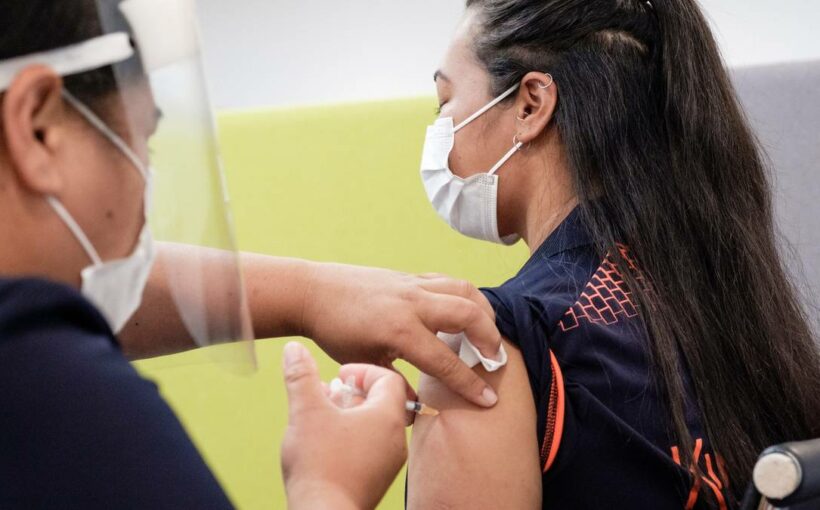Scientists say border workers need to keep being frequently tested even after receiving their vaccinations, to counter risks of them silently spreading Covid-19.
That recommendation has come out of a new modelling study suggesting there was a danger that vaccination could stop or reduce Covid-19 symptoms, but not transmission at the border.
One scenario the Te Punaha Matatini researchers modelled, in which the vaccine slashed transmission by half, vaccinating border workers was shown to boost the risk of a significant community outbreak.
Study co-author Professor Michael Plank said there had now been many cases in New Zealand where border workers, who’ve been among the first Kiwis to receive shots, had been infected with the virus.
This week’s latest case – in which a recently-vaccinated MIQ worker tested positive for Covid-19, seemingly without showing symptoms – highlighted the potential danger of it passing from border staff to the public.
“The concern is that, if you vaccinate people and they’re no longer becoming symptomatic, then you really rely on that routine testing, because that’s the only way you’re going to pick cases up,” he said.
“That’s just what we saw this week. And it’s really important that we keep this testing going, as well as all of the other public health measures and precautions we have at the border, so we don’t get any more community outbreaks starting this way.”
In their study, Plank and colleagues Dr Alex James, Dr Rachelle Binny, Dr Audrey Lustig, Professor Shaun Hendy and Dr Kannan Ridings, used a stochastic model to explore just what that danger looked like.
Their simulation, beginning with a single infected border worker, measured the number of people infected before the first case was detected by testing.
They showed that, if a vaccine reduced transmission by 50 per cent, vaccination of border workers increased the risk of a major outbreak from around 7 per cent per seed case to around 9 per seed case.
The less effective the vaccine was against transmission, the higher the risk was.
For instance, a vaccine that was zero per cent effective could lead to an outbreak of 22 cases within just seven days, assuming the infected MIQ worker was tested weekly.
The modelling suggested also frequency of testing made a significant difference.
An outbreak stemming from an MIQ worker given a vaccine that reduced transmission by 50 per cent could have grown to 17 people by the time the worker was tested, if that test was carried out weekly.
If the tests were carried out every two days, the outbreak would have only grown to an average 9.5 cases – or 14 if tests were done every four days.
“The increase in risk as a result of vaccination can be mitigated by increasing the frequency of routine testing for high-exposure vaccinated groups,” the researchers said.
The Pfizer-BioNTech vaccine that New Zealand border workers have received has been shown to be 95 per cent effective at reducing symptomatic transmission after the first dose.
“That puts us toward the more optimistic end of the scenarios that we looked at – but of course, it’s not 100 per cent.”
The Ministry of Health was reviewing the new findings, a spokesperson said.
“In the short term, there is a potential risk that a border worker may contract Covid-19 and have minimal symptoms,” they said.
“We need to remain vigilant. Until more is known about the effect of the vaccine on transmission, we continue to recommend the routine testing of vaccinated border workers to identify infection.”
Plank said the message was also relevant to the wider public.
“It’s important people don’t assume that just because they’re vaccinated, they can’t spread the virus to others,” he said.
“So until we get those really high vaccination rates across the whole population, we’re still at risk of community outbreak starting and getting into an unvaccinated part of the population, where it could do a lot of damage.”
Source: Read Full Article

/cloudfront-ap-southeast-2.images.arcpublishing.com/nzme/YQWQJVBWFR4YZCCXQLTXET4R3U.jpg)
/cloudfront-ap-southeast-2.images.arcpublishing.com/nzme/JVOVITCVSKU6AGSOPXOBCYH2AY.jpg)